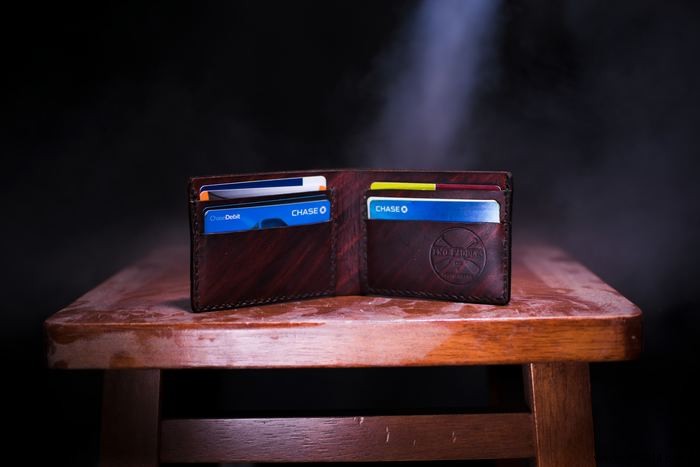Thieves can steal your credit card information while standing right next to you, especially if the card has an embedded RFID chip. These credit cards allow you to make quick payments by simply touching the card to a scanner instead of inserting it into a terminal or swiping it quickly.
Once they have copied the RFID data, thieves can create a clone of your card. With RFID blocking wallets, your card and the sensitive data it contains are protected.

An RFID blocking wallet prevents thieves from obtaining your credit card information. They contain a layer of metal or carbon fiber, which prevents electromagnetic fields from reaching your RFID chip credit card. This blocks all communication between your card and the scanner.
This way your credit cards stay safe. However, they must be inside the wallet to remain protected, as mere proximity to the wallet does not guarantee protection.
Yes and no.
If your credit cards don't have RFID chips, you don't need an RFID blocking wallet. However, if your cards are RFID chipped, there is a potential risk of being maliciously scanned.
Ultimately, the decision to get one is up to you. If you think the risk isn't worth buying an RFID blocking wallet, you probably don't need one. In addition, second-generation RFID smart cards encrypt and protect the data they transmit. This is different from the first generation cards whose supply is decreasing day by day.
But if you're willing to go the extra mile for peace of mind, buy one.
Either way, most RFID blocking wallets are affordable, and some even have a 365-day money-back guarantee to boot.
Credit card theft is a common crime. While you shouldn't be too concerned about RFID skimming, it's okay to take precautions, as thieves are constantly reinventing themselves.
Have you been the victim of RFID skimming? If so, are you now using an RFID blocking wallet? Share your experience with us in a comment below.